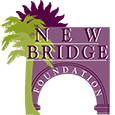If you have been looking for help for addiction for a loved one, you may feel hopeless or defeated. It is difficult to know what to do when a loved one is suffering. There are very few things in life that make you feel more powerless then sitting back and watching your loved one spiral out of control.
Addiction is an insidious disease. Many people who suffer from it are unable to get sober on their own. Most people need professional help. Although you know that your loved one needs help, they may be reluctant to accept it. Consequently, you probably feel unsure about how you can convince them to seek help for their addiction. At New Bridge Foundation®, we understand that while you can’t force someone to get sober, there are steps you can take to encourage your loved one to get addiction help.
Don’t Enable Your Loved One
When someone you care about gets into trouble or is in pain, you may feel as though it is your responsibility to take care of them. According to the American Psychological Association, enabling refers to patterns within close relationships, that support harmful or problematic behaviors and make it easier for that behavior to continue. Enabling is very common in families that struggle with addiction. Frequently family members feel that if they do not intervene and help, then the problems will just become worse for everyone. The trouble with this, however, is that it is difficult for someone to get help if they don’t really see the consequences of their actions. In other words, although it may not seem like it, enabling does not really provide help for addiction.
Set Healthy Boundaries
The best help for addiction for both yourself and your loved one is to practice healthy boundaries. Addiction may provoke behaviors that can stoke resentment. However, appropriate boundaries can help with that.
Personal boundaries are physical and/or emotional limits that people set for themselves as a way to safeguard their over-all wellbeing. Healthy boundaries help ensure that relationships are safe, supportive, and respectful. On the other hand, unhealthy boundaries may result in dysfunctional interactions, co-dependency, and a need to control others. All individuals in the addicted family will need to learn how to set healthy boundaries and an addiction professional, like the ones at New Bridge Foundation®, will be able to help
Reach Out to New Bridge Foundation® Today
If you are looking for skilled clinical care in a comfortable setting, you need look no further than the compassionate team of experts at New Bridge Foundation®. Our specialists have years of providing help for addiction. We always individualize our treatment approach so that each individual who enters treatment has their unique needs met. If your loved one is reluctant to seek addiction help, reach out to New Bridge Foundation® at 866.772.8491 today to learn more about our addiction treatment programs.







